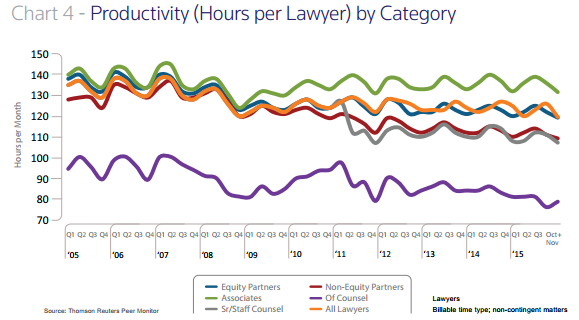Law Books For The Price Of Printing?
Originally published on Above The Law.
 Law students spend between $3,000 and $4,000 on books during law school. For those that borrow, add another $1,000 on the 10-year plan or $2,000 on the 20-year plan. While a drop in the bucket compared to tuition and living expenses, $4,000 to $6,000 for books is not insignificant.
Law students spend between $3,000 and $4,000 on books during law school. For those that borrow, add another $1,000 on the 10-year plan or $2,000 on the 20-year plan. While a drop in the bucket compared to tuition and living expenses, $4,000 to $6,000 for books is not insignificant.
Shaving these costs down to the cost of printing is a common suggestion, but it does not appear to have been done at scale. In a new article in the Saint Louis University Law Journal, Professor Ben Trachtenberg from the University of Missouri School of Law outlines how to actually do it with the goal of encouraging action.
The question is: will it happen?
(more…)
» Read the full text for Law Books For The Price Of Printing?
A Conversation with Dave Hoffman
Dave Hoffman has posted a thoughtful piece about the future of legal education, in which he wonders whether legal educators, law graduates, potential students, and others can have a conversation about legal education rather than a rancorous debate. I think many conversations are already occurring offline, but I’d like to create such a discussion here by exploring a few of Dave’s thoughts in what I hope is a conversational manner.
Accreditation
Dave suggests radically decreasing the regulations that law schools face through the accreditation process, with the hope that this would “enable students to cheaply access the right to take the bar.” I’m with him on some of his principles, which I hope will make our conversation productive, but disagree with his conclusion.
The Seventeen Percent
In a recent column, Professor Stephen Davidoff Solomon observes that the legal job market “is a world of haves and have-nots.” With BigLaw firms raising entry-level salaries from $160,000 to $180,000, he concludes, “[t]op law graduates are doing better than ever.” Conversely, “it is clear that it is harder out there for the lower-tier law schools and their graduates.”
I agree with Professor Solomon about the divided nature of our profession; that reality has haunted American lawyers for decades. Solomon, however, significantly overstates the percentage of law graduates who fall within his world of “haves” (those whose salaries recently climbed from $160,000 to $180,000).
Online Education at Law Schools
Today’s New York Times includes a column by Elizabeth Olson discussing online initiatives by law schools. Elizabeth was kind enough to quote some of my thoughts on this issue. If you’d like to read more about my suggestions, which encourage law schools to adopt a more innovative spirit with online courses, you can do so here. This is an area in which we could do well by doing good–if we’re just courageous enough to break some of our conventional boxes.
Did Firms Raise Salaries High Enough?
Originally published on Above The Law.
 Deborah Merritt, a law professor at the Ohio State University, published an informative analysis on her blog yesterday about the new market rate salary for large law firms, which has been extensively covered here on ATL.
Deborah Merritt, a law professor at the Ohio State University, published an informative analysis on her blog yesterday about the new market rate salary for large law firms, which has been extensively covered here on ATL.
To her and virtually every other observer, the increase to $180,000 signals that many large firms are prospering. In part the increase reflects a small but steady increase in associate productivity since 2008, reaching roughly the levels from the last market rate increase in 2007. The following chart is from the 2016 Report on the State of the Legal Market, issued by Georgetown Law’s Center for the Study of the Legal Profession:

Associates are continuously more productive by this measure than any other category of worker, although at lower billable rates than partners. Interestingly, the gap in productivity between associates and other groups is significantly greater post-recession.
(more…)
» Read the full text for Did Firms Raise Salaries High Enough?
$180,000
BigLaw firms gave 2016 graduates a sweet gift earlier this month: new associates at many of those firms will earn $180,000 (rather than $160,000) when they start work in the fall. That’s the first salary increase in BigLaw since 2007.
What should we make of this increase? It shows, certainly, that many BigLaw firms continue to prosper. But we already knew that from the firms’ reports of profits per partner. We also knew that associates are the most productive workers at those firms. This raise reflects rather belated recognition of that fact.
One could argue, in fact, that BigLaw partners are still undervaluing their associates. As Bruce MacEwen notes, the increase doesn’t match inflation since the last increase in BigLaw salaries. $180,000 in 2016 has less buying power than $160,000 did in 2007.
But those kids are going to be alright. I want to focus here on a shadow side of the BigLaw salary increase, one that the press and blogs haven’t discussed. BigLaw firms are paying more money–but to many fewer associates. This trend, which concentrates higher salaries in a smaller number of workers, has important implications for the legal job market.
Caveat Venditor: Throwback To The Days Of Junk Employment Statistics
Originally published on Above the Law
 Welcome to the second installment of Caveat Venditor, a series that assesses claims made by law schools to separate truth from fiction. This week we look at Brooklyn Law School’s employment rate of 92.2% posted on its “By The Numbers” infographic.
Welcome to the second installment of Caveat Venditor, a series that assesses claims made by law schools to separate truth from fiction. This week we look at Brooklyn Law School’s employment rate of 92.2% posted on its “By The Numbers” infographic.
I noticed this claim on Brooklyn’s website after investigating the concern of a prelaw advisor. At the quadrennial Pre-Law Advisor National Council conference, this prelaw advisor asked what to do when a law school does not meet the accreditation requirements by not publishing the required disclosures. Indeed, Brooklyn was publishing an old report nearly six months after the ABA required them to publish its new one. Brooklyn remedied this problem on Monday, citing an “oversight due to transitions in several administrative departments in the last year.” According to a spokesperson from the law school, the ABA did not follow up with the law school to make sure it published the materials on time or at all.
(more…)
» Read the full text for Caveat Venditor: Throwback To The Days Of Junk Employment Statistics
Plaintiff’s Personal Injury (NYC): A Radically Changed Business [Small Firm]
When most people are injured in car wrecks or at work, they can’t afford to pay a lawyer an hourly fee out of pocket to win their case against a large corporation or their insurance company. That’s why attorneys for the plaintiffs in these lawsuits use a contingency fee, which pays the lawyer about a third of the total settlement or verdict — but only if the plaintiff wins. That amount covers the work done by the lawyers, and compensates them for the risk of no payout.
In this episode, Dan Minc, a 1977 graduate of Seton Hall School of Law, discusses how he managed to rise up to his firm’s managing partner after starting there as a first-year lawyer. He also talks about how he builds his book of business and what he assesses when determining whether to take a client. After all, he’s only paid if his client wins.
This episode is hosted by Derek Tokaz, an academic writing teacher at American University. It is sponsored by ShouldIBeALawyer.com and Top-Law-Schools.com.
Episode Links
- Contingency Fee Alternative: Legal Expenses Insurance
- Rosenberg, Minc, Falkoff, & Wolff
- Daniel Minc Profile
Lessons for Online Legal Education
An increasing number of law schools are creating online courses, certificate offerings, and degree programs. As newcomers to online education, we should look to existing programs for inspiration. One of those is Harvard Business School’s successful CORe program, an online certificate course in business basics. I wrote about CORe’s suitability for law students several weeks ago. Here, I examine three lessons that the program offers to law schools interested in online education.
Caveat Venditor: Empty Threats From Notorious For-Profit Law Schools

This piece was originally published on Above the Law.
Welcome to Caveat Venditor, a new series that assesses claims made by law schools to separate truth from fiction. This week, we look at a threatening letter sent to a documentary film maker by Tom Clare, a lawyer for The Infilaw System.
InfiLaw owns three law schools — Arizona Summit, Charlotte School of Law, and Florida Coastal — and several legal education-related management companies. These are three of six total for-profit law schools approved by the ABA, although two of the other three are transitioning to non-profit status. InfiLaw also tried and failed to purchase Charleston School of Law after faculty, alumni, students, and the local legal community revolted.
Hat tip to Paul Campos for the full text of the letter:
I write on behalf of my client, The InfiLaw System (“InfiLaw”), regarding your inquiry into interviews with Florida Coastal School of Law officials for a documentary you are making. I write to caution you as you proceed with fact-finding and information gathering associated with your planned documentary.
Prior reporting on the issues you plan to address, including law school attrition rates and student success, has been plagued by gross misinformation, factual errors, and a general misuse and distortion of available data and analysis. This is especially true as they have been applied to InfiLaw schools such as Florida Coastal. Individuals, such as Paul Campos, have distorted facts and data and engaged in nefarious and inappropriate investigative tactics in order to accomplish a false agenda attacking law school admissions and career advancement policies. As such, I caution you to carefully assess any information and facts you gather from Mr. Campos and any other purported “authorities” on law school success metrics and the risks and rewards of attending law school in this day and age. InfiLaw and its affiliated schools will carefully analyze and assess any statements made about them and will not be afraid to pursue legal recourse to protect its reputation against any false and reckless statements.
In addition, InfiLaw requests that you notify me immediately upon any decisions to include any references to or subject matter about InfiLaw or any of its affiliate schools in your documentary, and provide InfiLaw the opportunity to review and comment on them prior to any public dissemination.
» Read the full text for Caveat Venditor: Empty Threats From Notorious For-Profit Law Schools
About Law School Cafe
Cafe Manager & Co-Moderator
Deborah J. Merritt
Cafe Designer & Co-Moderator
Kyle McEntee
 Law School Cafe is a resource for anyone interested in changes in legal education and the legal profession.
Law School Cafe is a resource for anyone interested in changes in legal education and the legal profession.
Around the Cafe
Subscribe
Categories
Recent Comments
- on Scholarship Advice
- on ExamSoft: New Evidence from NCBE
- on COVID-19 and the Bar Exam
- on Women Law Students: Still Not Equal
- on Ranking Academic Impact
Recent Posts
- The Bot Takes a Bow
- Fundamental Legal Concepts and Principles
- Lay Down the Law
- The Bot Updates the Bar Exam
- GPT-4 Beats the Bar Exam
Monthly Archives
Participate
Have something you think our audience would like to hear about? Interested in writing one or more guest posts? Send an email to the cafe manager at merritt52@gmail.com. We are interested in publishing posts from practitioners, students, faculty, and industry professionals.